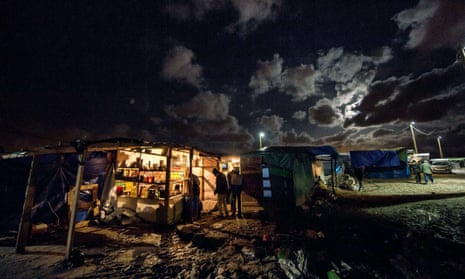It was a Saturday morning. August. I remember it vividly. I was online, sat up in bed, browsing, not looking for anything in particular. An article caught my eye: it was about the refugee crisis. Men, women and children were risking their lives to get to western Europe, and many were dying in the process. It was a story of endurance and terrible trauma. In response I expected compassion, a swell of fellow feeling. But my heart sank as I read the comments. There was so much cruelty. These people whose suffering was so much greater than anything I had experienced were being dehumanised, talked about as though they were rats. It made me feel sick. I thought: I don’t want to be like this. I want to show that there are people in Britain who care.
My husband came upstairs to find me crying. I felt helpless and angry. The best way to answer the heartlessness I’d seen online would be to make a donation – to provide some material support to the refugees and make their lives a bit easier. I thought it would be easy to find a big charity that I could send money to. But I looked and looked, and didn’t find anything. Eventually I came across Stand up to Racism. They were sending supplies to Calais, where thousands of refugees were staying. I suddenly realised that I wanted to offer more than cash. Before I knew it, I was making plans to drive to Dover and use my car to help transport clothing across the channel.
That was in the summer. I’m still in Calais now. I left behind my business and my husband and family. It’s been hard for them, but they know it’s something I just have to do. I can’t stand by in all conscience and ignore what’s happening. I can’t imagine living my normal life, going to restaurants, parties, without thinking about how people here need help.
Since I first arrived my job has evolved. I’m now running distribution for Care4Calais. Every day, I wake up in my bedsit on the outskirts of the town, have a quick shower, a 30-second breakfast, then I’m down to our warehouse where we collect together donated clothes, food, bedding and camping equipment. We brief our volunteers and then split into teams. I spend most of the day at the camp, face-to-face with refugees.
Some of the most emotional moments are when people who have received supplies thank me, despite not knowing the language. The other day a guy came up to me. He pointed to his shoes and said “England”, then to his coat and said “England”, then he just cheered. Sometimes people walk past, point at what they’re wearing and just kiss me. It’s an amazing feeling: like I’ve made a difference to their lives, made things just a tiny bit easier for them.
These are not people who have come here by choice to take advantage of our generosity. That’s a caricature. Who would go through what they’ve gone through – terror, bereavement, loss of all their possessions – unless there lives depended on it? They’re here because existence is impossible back home. Whether it’s war, political or religious persecution, whether it’s Syria or Afghanistan, they have no choice.
I believe we have a responsibility to help these people. This is a globalised world, and we can’t pretend it isn’t. There were many moments of heroism during the second world war: of people doing their utmost to help others in trouble. But then there were those who stood by as terrible things happened, burying their heads in the sand. History has judged them badly. I want to be on the right side of history. We desperately need changes in policy – our asylum laws were written a long time ago when there was a far smaller number of political refugees. They’re no longer fit for purpose. They government has to address this and people have to come to terms with it.
Personally I don’t have a plan. I’ve been here for four months. Every day I’m in emergency mode. I can’t see myself leaving any time soon. What makes it easy is the faces of the people I’m helping. Their warmth in spite of the adversity. Their amazing generosity and hopefulness despite everything they’ve been through. They’re not our enemies. They’re friends in desperate need. I’m just glad I can lend a hand. You can too.
